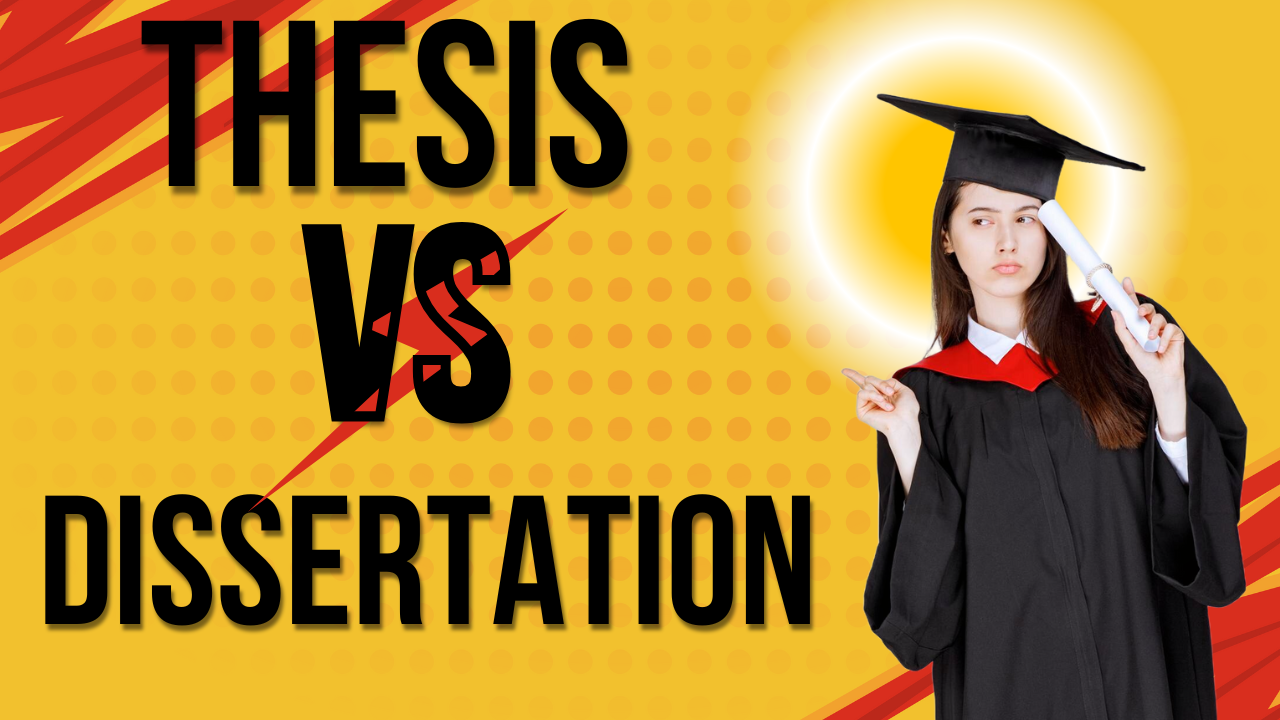Thesis and Dissertation: Key Differences and How to Approach Them
Kenfra Research - Shallo2025-01-21T17:23:30+05:30Embarking on an academic journey often involves encountering terms like Thesis and Dissertation, which are sometimes used interchangeably. However, understanding the distinct definitions of Thesis and Dissertation is crucial for students pursuing higher education. This blog dives deep into the meaning of a thesis, explores its differences from a dissertation, and provides insights into their respective purposes.

What is a Thesis?
A thesis is a comprehensive academic document submitted as part of a graduate program, typically for a Master’s degree. It represents a student’s ability to conduct independent research on a specific topic within their field of study. A thesis showcases the student’s critical thinking, research skills, and ability to contribute to the academic community.
A well-crafted thesis demonstrates:
- A deep understanding of the chosen subject.
- The ability to analyze and synthesize existing research.
- Clear and concise academic writing.
Thesis projects often involve reviewing literature, developing a research question, and presenting findings in a structured manner. The process helps students hone their research and analytical skills, preparing them for advanced academic or professional roles.
What is a Dissertation?
A dissertation, on the other hand, is an extensive research project completed during a doctoral program. It signifies the culmination of years of study and is required for earning a PhD. Unlike a thesis, a dissertation often involves original research that contributes new knowledge or insights to a particular discipline.
The key components of a dissertation include:
- Formulating a unique research question or hypothesis.
- Conducting original research, including data collection and analysis.
- Presenting findings that advance academic understanding in the field.
Dissertations are more complex and require a higher level of commitment, as they are expected to make a significant academic contribution.
Key Differences Between a Thesis and a Dissertation
- Academic Level
- Thesis: Associated with Master’s degree programs.
- Dissertation: Pertains to doctoral programs.
- Purpose
- Thesis: Demonstrates mastery of a subject and research capabilities.
- Dissertation: Aims to make an original contribution to academic knowledge.
- Scope of Work
- Thesis: Focuses on analyzing existing research and presenting findings in a specific area.
- Dissertation: Involves conducting original research to address a unique question or hypothesis.
- Length
- Thesis: Generally shorter, ranging from 40 to 80 pages.
- Dissertation: Substantially longer, often exceeding 150 pages, depending on the field of study.
- Research Requirements
- Thesis: May rely on existing literature, with limited original research.
- Dissertation: Requires in-depth, original research, including data collection, analysis, and interpretation.
Similarities Between a Thesis and a Dissertation
Despite their differences, both documents share commonalities:
- Both require a clear research question or hypothesis.
- Both involve extensive academic writing and adherence to a specific format.
- Both are evaluated by a committee and may include an oral defense.
- Both serve as critical milestones in academic careers, showcasing expertise and dedication.
How to Approach a Thesis or Dissertation
- Choose the Right Topic
Select a topic that aligns with your interests and academic goals. Ensure it is feasible within the scope of your program.
- Develop a Strong Proposal
Outline your research objectives, methodology, and expected outcomes. A clear proposal serves as a roadmap for your project.
- Conduct Thorough Research
Gather and analyze relevant literature, data, or case studies. Stay organized and document your sources meticulously.
- Seek Guidance
Collaborate with your advisor or mentor for feedback and support throughout the process.
- Focus on Quality Writing
Present your findings in a clear, structured, and concise manner. Proofread and edit your work to maintain academic standards.
Choosing Between a Thesis and Dissertation
For students deciding on a path, it’s essential to consider academic goals:
- If aiming for a Master’s degree, a thesis may be the required capstone project.
- For those pursuing academic careers or specialized expertise, a dissertation within a PhD program is essential.
Conclusion
Understanding the differences between Thesis and Dissertation helps students prepare for the unique challenges each entails. While Thesis and Dissertation vary in purpose, a thesis emphasizes mastering existing knowledge, whereas a dissertation pushes the boundaries by contributing new insights to academia. Recognizing these distinctions ensures clarity as students navigate their academic pursuits.
If you need guidance with your thesis or dissertation, Kenfra Research offers comprehensive PhD assistance services. From topic selection to plagiarism checks, we ensure your work meets academic standards. Contact us today and take the first step toward academic excellence!










Leave a Reply